Startseite > Collections > Research and collaboration projects
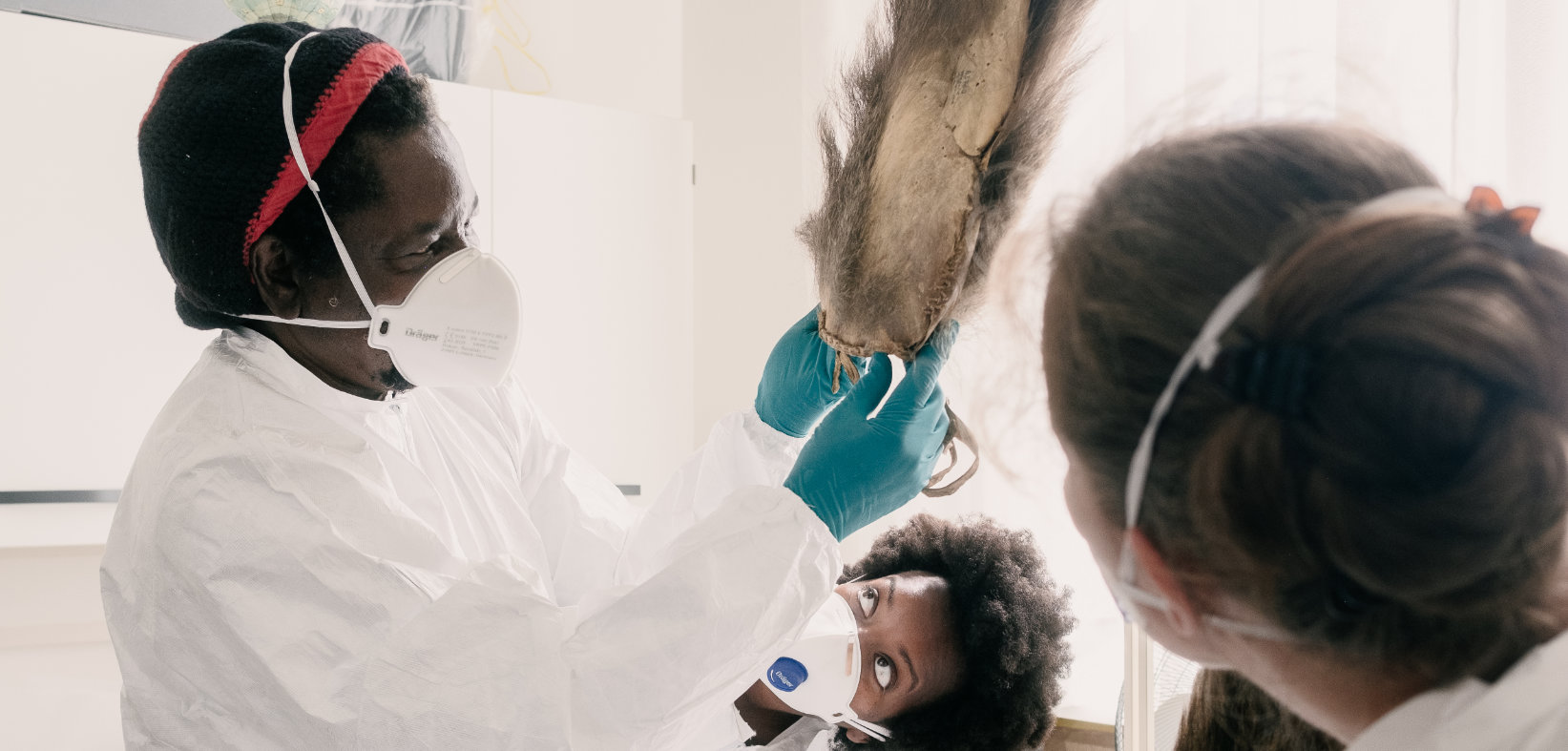
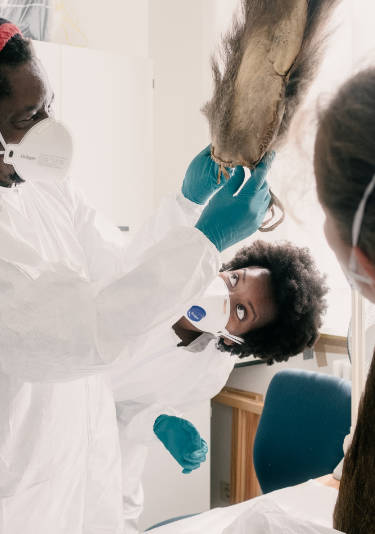
Research and collaboration are central to our work. We conduct research on collections, their contents and contexts, as well as on questions of the social relevance of an anthropological museum.
Networking and interdisciplinary exchange with other academic institutions, scholars, and representatives of indigenous societies worldwide play an important role.
Eleven German museums of world cultures, delegates from the Interministerial Committee for the Return of Illegally Removed Cultural Property and representatives of traditional royal houses from Cameroon spoke at the “Dialogue Meeting: Cameroon and Germany” at the Linden-Museum Stuttgart from January 14 to 16, 2024, on possible ways of returning cultural property to Cameroon and on sustainable cooperation. The meeting was attended by German representatives from museums in Berlin, Bremen, Braunschweig, Frankfurt, Hamburg, Hanover, Cologne, Leipzig, Mannheim, Munich and Stuttgart. Joint intentions were agreed in the “Stuttgart Communiqué”.
Since October 2023 the PhD program “A Doctorate in the Museum: The Local and Global Dimensions of Objects in Anthropological Museums in Baden-Württemberg Today” (DIMA), has been running. DIMA is an innovative scholarship program for doctoral studies in the research field of “Museums and Collections”. The program funds three scholarships for research into the ethnographic collections of the University of Tübingen and/or the Linden-Museum Stuttgart. The three funded doctoral projects are anchored within the disciplines of Social and Cultural Anthropology, Historical and Cultural Anthropology, and History. The program is funded jointly by the Ministry of Science, Research and Arts of Baden-Württemberg, the Linden-Museum Stuttgart and the University of Tübingen and provides three scholarships running for three years from October 2023 to September 2026.
The three current scholarship holders are Sophie Eckhardt, Katharina Nowak and Judith Zweck.
Sophie Eckhardt’s project has the working title of “Exhibition-making in the 21st century. A process-accompanying research of an exhibition of the Linden-Museum Stuttgart”. It ties in with current debates on renegotiating the role and relevance of ethnographic museums in the 21st century.
Katharina Nowak’s PhD project, entitled “The Decolonial Knowledge Production of Ethnographic Collections: Rethinking Museums”, focuses on ethnographic objects that were taken from the Pacific Ocean island states to Stuttgart and Tübingen during the colonial period.
Judith Zweck’s thesis, entitled “Blank Spaces in the Museum: Purchases and Sales of Museum Holdings to the Art Trade in the Period from 1945 to 1973 at the Linden-Museum Stuttgart”, examines the collections of the Linden-Museum that were acquired in that particular time period, as well as the museum’s relations with various art dealers.
more …
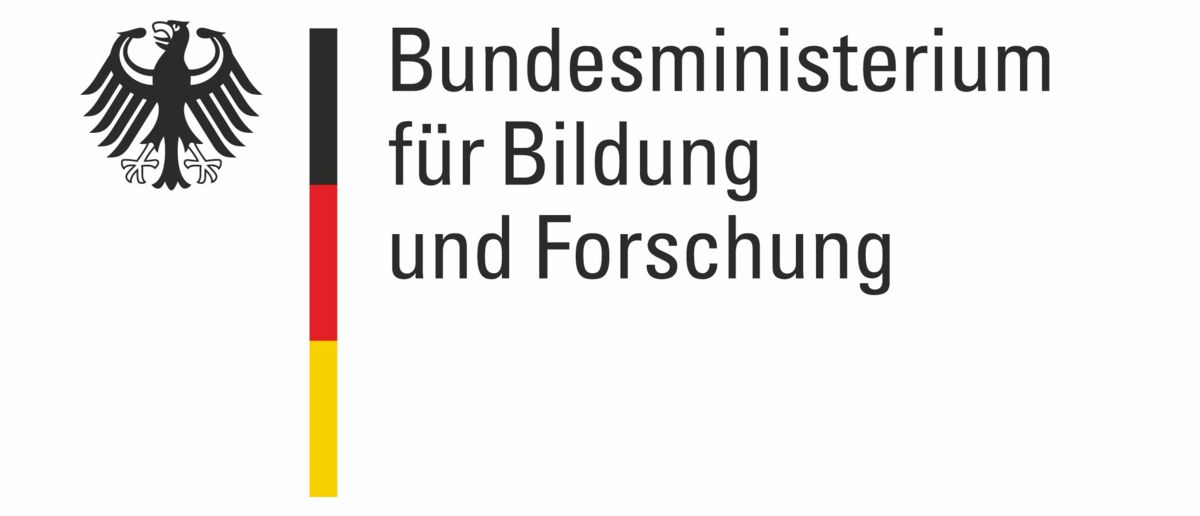


Dealing with colonial heritage: With the project “With Namibia – Engaging the Past, Sharing the Future” we are a partner of the Namibia Initiative of the State of Baden-Württemberg.
More Information: https://mwk.baden-wuerttemberg.de/de/kunst-kultur/namibia-initiative
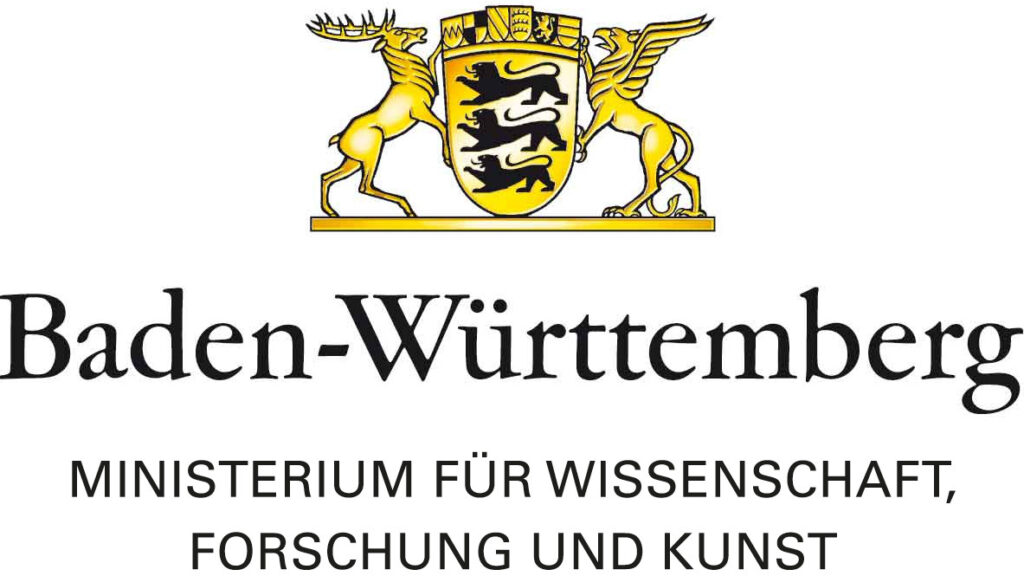
The aim of the project is to develop a guidance system through the museum’s permanent exhibitions that enables interaction with the exhibitions, the exhibits and the museum space. A particular focus is on accessibility for people with mental and physical disabilities.
A hands-on replica of an exhibit will be available at several stations, serving as an anchor for further content. However, our concept should above all be adapted to the needs and requirements of the intended visitor groups, which is why we are initially keeping the result, which is worked out in workshops, flexible.
Through this project, we hope to make our museum more accessible to people with inclusion needs. At the same time, we want to gather experience in order to develop more inclusive offers in cooperation in the future.
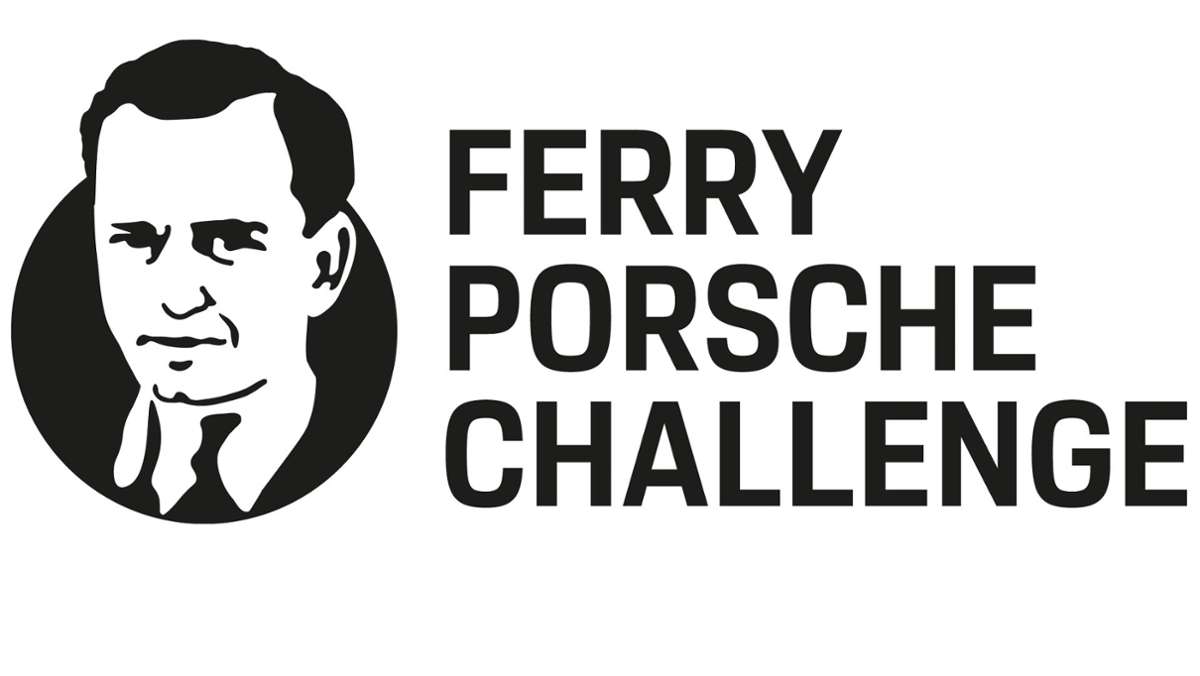
The Linden-Museum, like many anthropological museums, is undergoing change. In an increasingly diverse society, we need to renegotiate the social role and relevance of anthropological museums. The LABs allow us to experimentally develop the basis for a new orientation. In eight LindenLABs, we develop and test new forms of museum knowledge production, mediation, and presentation. The project is funded by the Initiative for Ethnological Collections of the German Federal Cultural Foundation.
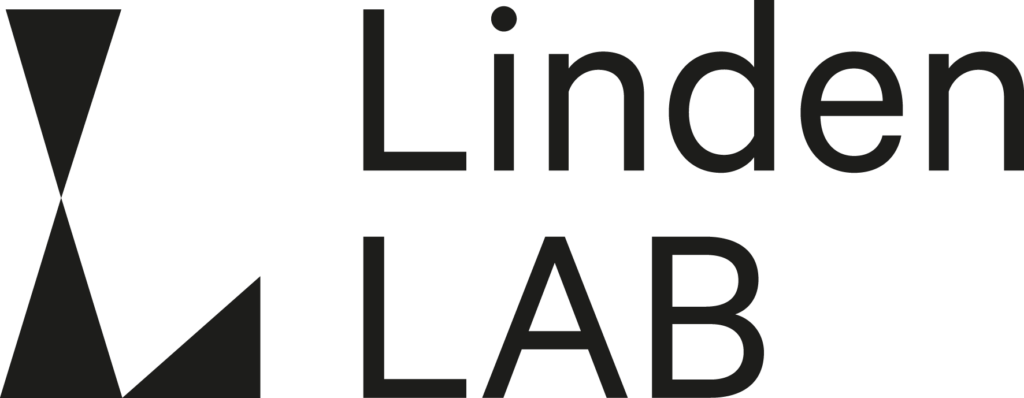
“Taking Care – Ethnographic and World Cultures Museums as Spaces of Care”: The four-year EU collaborative project with 13 European partners started in October 2019. Together, they explore the connections between ethnographic collections and issues related to the climate crisis and the anthropocene. One focus is on the aftermath of colonialism in this context.

The restoration of a precious Koran by the 16th-century Persian master calligrapher Abd al-Qadir al-Husaini by graduate restorer Regina Schneller was funded by the Ernst von Siemens Art Foundation’s Corona program for independent artists working in museums and collections.
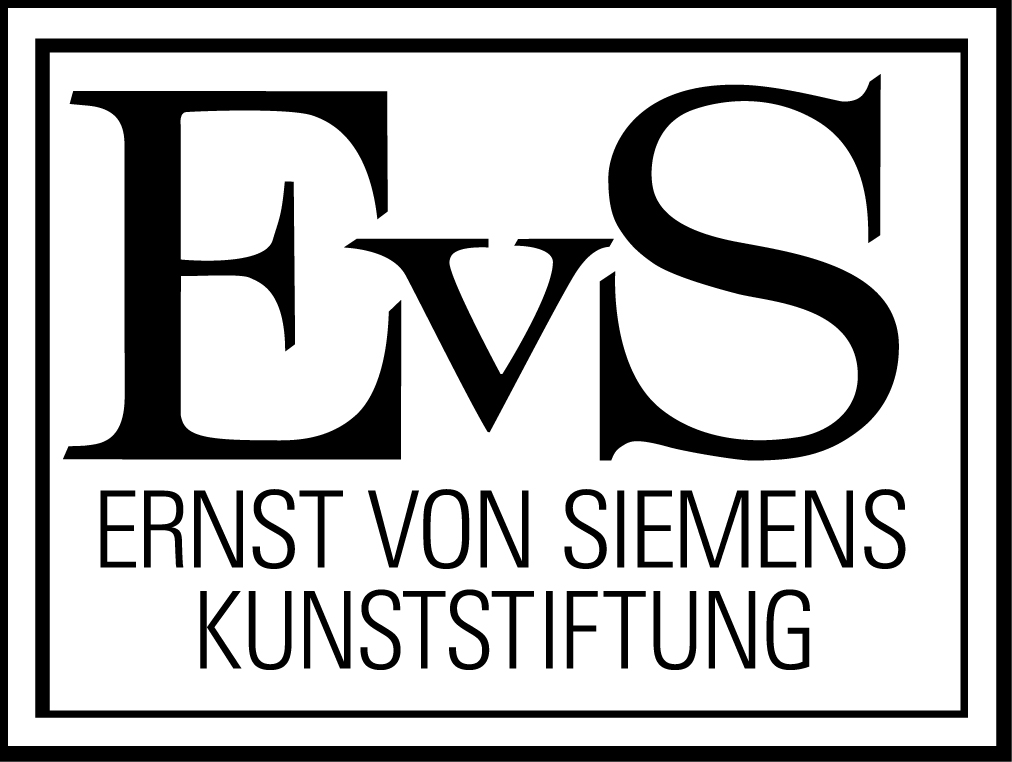
In a two-year research project entitled “Difficult Heritage,” the Eberhard Karls University of Tübingen and the Linden-Museum Stuttgart examined the museological and scientific treatment of colonial-era objects in anthropological museums.

A cultural landscape as a core area for the formation of the material culture of the Islamic world and its location in collections and museum presentations: Research project of the Otto-Friedrich-Universität Bamberg, the Staatliche Museen zu Berlin Preußischer Kulturbesitz/Museum für Islamische Kunst and the Linden-Museum Stuttgart, funded by the German Federal Ministry of Education and Research.


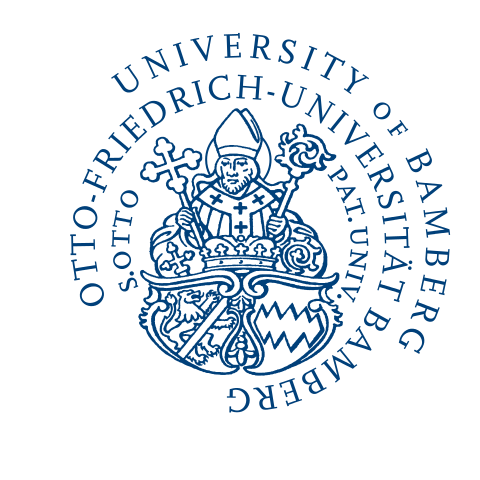
Research on intra- and transcultural processes of object-based knowledge exchange in the Guyanas: The Linden-Museum was a partner in the project funded by the Federal Ministry of Education and Research under the auspices of the Department of Ancient American Studies with the Bonn Ancient American Collection (Institute of Archaeology and Cultural Anthropology) of the Rheinische Friedrich-Wilhelms-Universität Bonn.

From April 2016 to March 2017, the Linden-Museum had established a provenance research position to work on acquisitions that entered the museum’s holdings between 1933 and 1945. With funding from the German Lost Art Foundation, the state of Baden-Württemberg, and the city of Stuttgart, Shammua Mohr was able to research the provenance of 1082 objects.

The German Research Foundation funded the project “The Art Chamber of the Dukes of Württemberg. Research on the Collection, History and Context”. A large part of the original collection is housed in the Württemberg State Museum. Other objects are distributed among eight institutions, including ethnographic objects in the Linden-Museum Stuttgart.

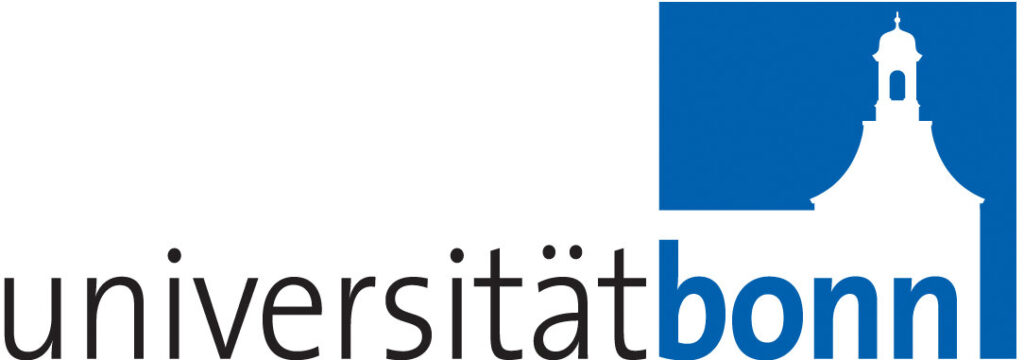


Dienstag bis Samstag, 10 – 17 Uhr
Sonn- und Feiertage, 10 – 18 Uhr